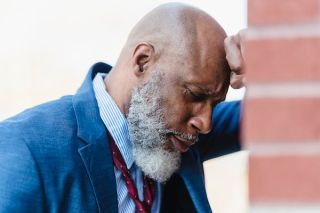Creativity
How 'Playing It Safe' Inhibits Our Creativity
More failure equals more creativity.
Posted December 29, 2022 Reviewed by Vanessa Lancaster
Key points
- "Screwing up" is an essential ingredient to a creative life.
- Creativity is never about perfection but rather direction.
- Some of the most creative people in the world make lots of mistakes.
You may be familiar with Sara Blakely, the woman who founded Spanx. Her first product, a comfortable girdle, was invented because she wanted to wear pantyhose (with no feet) underneath her fitted pants. Her prototype was crude and had several design problems. But she persevered and kept coming up with better and better designs.
However, her efforts to manufacture the new product also met with lots of “Thanks, but no thanks.” Manufacturers thought the idea was silly, and distributors constantly told her that no one would buy such a radical departure from typical women’s undergarments (Almost all of those manufacturers were men, by the way.).
But Sara persisted. In the book Getting There: A Book of Mentors, she wrote: “Most doors were slammed in my face. I saw my business card ripped up at least once a week, and I even had a few police escorts out of buildings.”
She received a lot of “no’s,” but she had also developed an immunity to all those negative reactions. She had embraced the “growth mindset” and would not be deterred in her efforts at getting her products off the ground and into the shopping carts of potential customers. She shrugged off failures like rainwater–knowing each one was a further incentive to press on.
And, press on, she did. In 2012 Forbes named her the youngest self-made female billionaire in history. In the same year, Blakely was also named to Time Magazine’s “Time 100” annual list of the 100 most influential people in the world.
Blakeley attributed that tenacity to her father. Every week, as they sat around the dinner table, her father would ask both her and her brother the same question: “What did you guys fail at this week?”
According to Blakeley, her father
…knew that many people become paralyzed by the fear of failure. They’re constantly afraid of what people will think if they don’t do a great job and, as a result, take no risks. His attitude taught me to define failure as not trying something I want to do instead of not achieving the right outcome.
In short, Sara Blakeley’s philosophy is that failure is a learning opportunity, not an epitaph.

Learning How to Fail
Part of the issue is that throughout our lives, we were never taught how to fail or, more importantly, ever permitted to fail. We have been constantly told that winners are those who achieve–those who reach the highest pinnacle of success. In sports, we are told that winning the championship (or even just the game) is the true measure of success.
In the classroom, we are told that getting an “A” is the epitome of academic achievement. At work, we are told that increasing sales or production is the path to excellent performance evaluations and raises.
Drop a touchdown pass, and you’re a loser; do poorly on a test and are academically incompetent; show a decline in quarterly sales figures, and you’re out of a job. The message is clear: the ultimate goal in life is to be successful at every turn. No failures allowed!
And so, psychologists list fear of failure as one of the biggest stumbling blocks to our creative intents. You tend to play it safe if you are afraid of making mistakes. As a result, your innate creativity withers and dies.
In the business world, companies want to be seen as innovative and “cutting edge.” But, those same companies are composed of legions of employees adverse to trying new ideas because new ideas can fail, and when they fail, they could be out of a job. Workers would rather play it safe than take a chance.
Playing it safe tethers us to reality and logic and ensures that the status quo will be maintained. Why live in fear (of failure) when it is much easier and less demanding to stick to the familiar? The unfamiliar–the creative–has so many more risks and so many more potential dangers. We mentally resort to, “Thank you, but I’m fine just as I am.”
A work culture where experimentation and failure are valued or even celebrated is a rarity. Laurence Lehman Ortega, affiliate professor in strategy and business policy at HEC Paris Executive Education, believes that the culture of experimentation in the workplace is unusual as only success is celebrated. “It’s a learned behavior pattern,” he says.
As children, we’re told that we need to succeed and are rewarded only when we do so. Managers in firms are only recognized and incentivized on their success and as a result are reluctant to take risks.
Very few companies such as Google actively incentivize managers if they admit early on that they’ve failed or reward the time spent on failed exploration projects.
Want to be more creative? Celebrate and embrace your failures as necessary elements of a creative life.
References
Adams, R.L. “5 Ways Fear of Failure Can Ruin Your Business.” Entrepreneur.com (September 19, 2017).
Couric, Katie. "The 100 Most Influential People in the World.” Time Magazine. (April 18, 2012).
Fredericks, Anthony D. From Fizzle to Sizzle: The Hidden Forces Crushing Your Creativity and How You Can Overcome Them. (Indianapolis, IN: Blue River Press, 2022).
Higginbottom, Karen. “Why the Ability to Fail Leads to Innovation.” Forbes.com (August 3, 2017).
Segel, Gillian Zoe. Getting There: A Book of Mentors (New York: Abrams, 2015).




